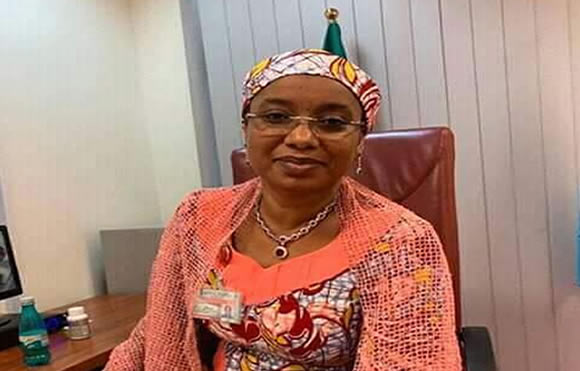The Adamawa State governorship election has gone down as one of the most controversial elections held in Nigeria on March 18 and the closest a woman would come to becoming governor of a state after the outstanding performance of Aisha Alhassan in the governorship election of Taraba state in 2015.
Despite the cultural, religious and financial limitations that weigh heavily against women seeking to grow a career in politics, there have been increased calls for more female representation in the political space and expectations were high.
All eyes were on the governorship candidate of All Progressives Congress, Aisha Dahiru, popularly known as Binani, a former lawmaker who had represented Adamawa Central in the last four years and chaired the Senate Committee on Sustainable Development Goals (SDGs).
Of the 416 candidates who vied for the office of governor in the country, only 24 were women and the 51-year-old politician put up an impressive fight from start to finish of the race, daring to wrestle power from a sitting governor and strong ruling party in the state.
Binani’s thorny path and near wins
In 2021, an Appeal Court sitting in Yola, the Adamawa State capital, declared Binani as governorship candidate of the APC in the state, setting aside the judgement of a Federal High Court which had earlier nullified the governorship primary conducted on May 27 2021, and declared that APC has no candidate for the 2023 governorship election.
The senator had challenged the ruling of the lower court and its jurisdiction to entertain the matter, while also describing the suit as incompetent, contentious, and rancorous.
Banani won the case and was duly recognized by the Independent National Electoral Commission (INEC) as the APC’s candidate for the governorship election in Adamawa state.
On March 19, a day after gubernatorial elections were held across the country, a spokesperson for the ruling APC, Bayo Onanuga, announced that Binani had become the country’s first elected female governor, a claim that turned out to be false as the electoral commission declared the results in Adamawa inconclusive on March 21.
At this time, the incumbent Governor Ahmadu Fintiri of the Peoples Democratic Party (PDP) was in a clear lead with over 30,000 votes after polling a total of 430,861 votes while the Binani had 398,788 votes.
Again, on April 16, barely a day after supplementary elections were held nationwide, the Resident Electoral Commissioner (REC) appointed by INEC in Adamawa, Hudu Yunusa-Ari, sparked a controversy when he announced Binani as Governor-elect.
In a similar fashion as Onanuga, the spokesperson for the APC 2023 Presidential Campaign Council, Festus Keyamo, hastily sent out a congratulatory message Binani and appreciated “all those who worked so hard for this”.
But elsewhere outside the APC camp, the declaration resulted in protests, causing INEC to swiftly void and nullify the sham exercise, stating that the REC had no power to announce a winner as it was a task to be performed only by a returning officer.
The collation of results was also temporarily suspended to allow for preliminary investigation and a few hours after collation resumed under heavy security presence in Yola on April 18, Fintiri was declared winner of the election by the INEC Returning Officer in the state, Mohammed Mele.
Fintiri won the supplementary election which was held in 69 polling units in the 20 local governments in the state, with 9,337 votes, defeating Binani who polled 6,513 votes.
It remains to be seen if this will be the final verdict on the Adamawa state 2023 governorship election, or whether Binani would challenge the victory in court and what the outcome would be.
In an earlier move, the APC candidate had approached a Federal High Court in Abuja to stop the INEC from voiding the illegal declaration that named her as the governor-elect of the state.
According to the court papers, she argued that the after the collation of results, INEC declared her the winner of the election but the PDP and the incumbent governor violently disturbed public peace and attacked an INEC National Commissioner.
She claimed the crisis that ensued forced INEC to void the original declaration naming her the governor-elect of the state, adding that that INEC did not have the power to void a declaration made as only the election petition tribunal has the power to void such a declaration.
